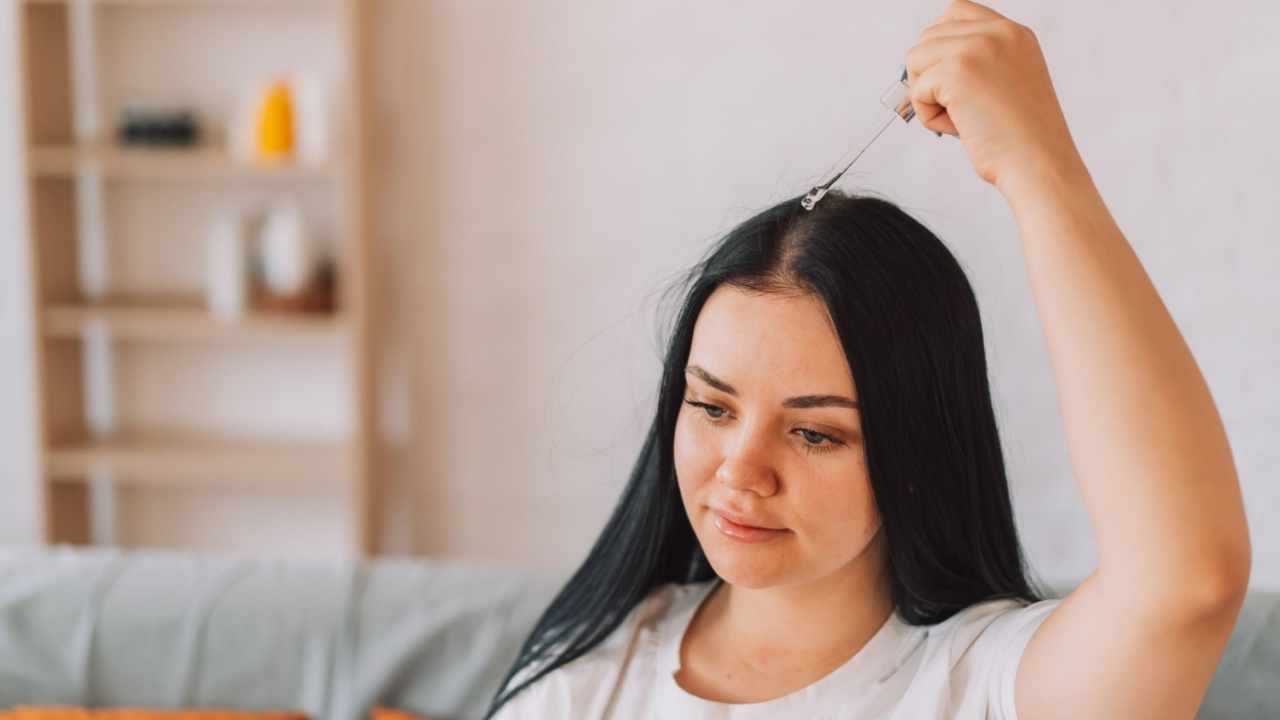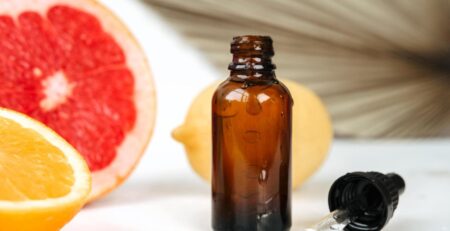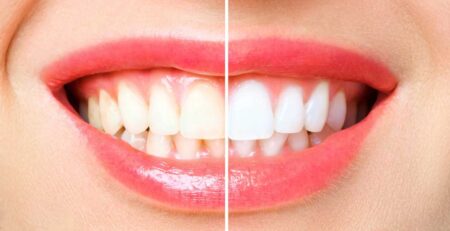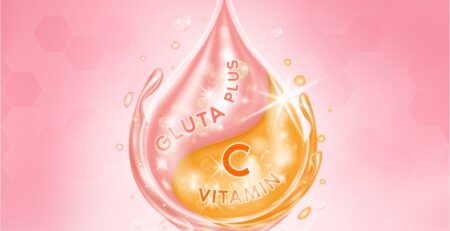Which Vitamins Help Hair Growth: Impact of Vitamin Deficiencies on Hair Loss
Have you ever noticed how your hair’s luster and bounce serve as a mirror, reflecting your overall health?
Our braids are often one of the first indicators of a nutritional imbalance, which is why we’re focusing on the impact of vitamin deficiencies on hair loss. It’s a little-known fact that up to 80% of adults struggle with hair loss at some point, often due to nutritional factors.
In this blog, we will delve into the science of hair growth, the essential vitamins for maintaining healthy locks, and how their deficiencies can lead to hair loss.
This blog might hold the answer if you’ve wondered why your hair seems less vibrant lately.
Which Vitamins Help Hair Growth?
Understanding the vitamins essential for hair health and the signs of their deficiencies can help you better manage your hair health. Let’s dive into the critical vitamins and their deficiency symptoms in maintaining healthy hair.
Vitamin A
All cells need vitamin A for growth, including hair, the fastest-growing tissue in the human body. Vitamin A also helps skin glands produce sebum, which moisturizes the scalp and helps keep hair healthy.
However, vitamin A deficiency can lead to several problems, including hair loss. Signs of deficiency include dry hair, dry skin, poor night vision, and frequent throat and chest infections.
B-Vitamins (especially Biotin)
B vitamins, particularly Biotin (B7), are crucial for hair health. They help create red blood cells, which carry oxygen and nutrients to the scalp and hair follicles – vital processes for hair growth.
A deficiency can cause hair loss, fatigue, neurological symptoms like numbness and tingling, and a red, scaly rash.
Vitamin C
Vitamin C aids in producing collagen, a protein that strengthens hair. Additionally, it helps your body absorb iron, a mineral necessary for hair growth. You might experience hair loss, fatigue, anemia, and a weakened immune system if you’re deficient.
Vitamin D
Emerging research suggests that vitamin D plays a role in hair production, but how it works is still a bit of a mystery. However, researchers know that vitamin D receptors exist in hair follicles. A deficiency in this vitamin may result in hair loss, bone pain, muscle weakness, and fatigue.
Vitamin E
Like vitamin C, vitamin E is an antioxidant that can prevent oxidative stress and boost hair growth. Lack of adequate vitamin E can lead to nerve pain, muscle weakness, and, in severe cases, loss of body movement control.
Iron
While not a vitamin, iron is an essential mineral that hair follicles require. Iron helps red blood cells carry oxygen to your cells, including hair follicles, promoting healthy hair growth. Iron deficiency, which causes anemia, is a significant cause of hair loss, especially in women.
Connecting the Dots: How Deficiencies Lead to Hair Loss
Having established the importance of these vitamins for hair health, let’s understand how their deficiencies can lead to hair loss.
Vitamin A
A deficiency in vitamin A can lead to dry hair, which may become brittle and break more easily. Also, a lack of sebum production due to vitamin A deficiency can cause an itchy scalp and hair loss.
B-Vitamins
B vitamins, specifically Biotin, promote the creation of red blood cells, supplying the scalp and hair follicles with oxygen and nutrients necessary for hair growth. A deficiency can thus reduce the supply of these vital nutrients to your hair follicles, leading to hair loss.
Vitamin C
This vitamin is key in creating collagen, an essential part of the hair structure. Lack of vitamin C can cause collagen underproduction, leading to structurally weak hair and prone to breakage. Also, poor iron absorption due to vitamin C deficiency can indirectly cause hair loss.
Vitamin D
Though research is ongoing, a deficiency in Vitamin D has been linked to alopecia, a technical term for hair loss. It’s suggested that this vitamin helps stimulate hair follicles so that a lack could lead to inactive follicles and, as a result, hair loss.
Vitamin E
This helps protect your hair and scalp from oxidative stress. When your body lacks enough antioxidants to combat this stress, it can result in hair follicle damage and hair loss.
Iron
An iron deficiency starves your hair follicles of oxygen, leading to hair loss. Iron is also essential for synthesizing DNA and RNA, including the cells that make up hair follicles.
Understanding Vitamin Deficiencies
Vitamin deficiencies occur when your body doesn’t receive or cannot absorb the necessary amount of a certain vitamin. These deficiencies are generally caused by factors such as poor diet, certain health conditions, or during rapid growth or pregnancy periods where the body’s needs are increased.
Deficiencies in essential vitamins can lead to various health problems. Symptoms of vitamin deficiencies can be subtle at first, but they increase in severity as the deficiency worsens.
They can range from fatigue, dizziness, and shortness of breath, to more specific symptoms like hair loss in the case of deficiencies of particular vitamins.
It’s important to note that each vitamin plays a unique role in maintaining your body’s health, so the specific vitamin you’re deficient in can lead to different symptoms and health complications.
Prevention and Management of Vitamin Deficiencies
Now that we understand how vitamin deficiencies can lead to hair loss, let’s explore ways to prevent and manage these deficiencies to ensure optimal hair grow and health.
Balanced Diet

A balanced diet rich in various nutrients is the first step to preventing vitamin deficiencies. Incorporate foods rich in vitamins A, B, C, D, E, and iron. For instance, leafy greens, fruits, lean meats, eggs, nuts, and whole grains should form part of your diet.
Vitamin Supplements
While a balanced diet is essential, there might be instances where you may need additional support in the form of dietary supplements, especially in cases of significant deficiencies. Always consult your healthcare provider before starting any supplement regimen.
Regular Check-ups
Routine health check-ups can help identify vitamin deficiencies at an early stage. Regular blood tests can monitor vitamin levels and ensure your body absorbs enough nutrients from your diet.
Healthy Lifestyle
Maintaining a healthy lifestyle that includes regular exercise, adequate sleep, and minimal stress can also help keep your overall health and, in turn, your hair healthy.
Stay Hydrated
Drinking plenty of water is also crucial. Proper hydration helps nutrient absorption and transports these vitamins to the scalp and hair follicles.
Professional Guidance
Consider consulting a dietitian or nutritionist who can provide expert advice tailored to your needs. They can guide you on the right balance of nutrients and recommend any necessary supplements.
Consultation and Personalized Approach
While the information in this blog provides a general guide to understanding the impact of vitamin deficiencies on hair health, it’s crucial to remember that everyone’s body and nutritional needs are unique.
Therefore, personalized advice is essential for hair loss and potential vitamin deficiencies.
Importance of Professional Consultation
If you’re experiencing hair loss, it’s vital to consult with a healthcare professional. They can conduct necessary tests to identify whether a vitamin deficiency could be the culprit.
Numerous other factors, including hormonal imbalances, age, genetics, stress, etc., can also cause hair loss. Therefore, getting a comprehensive diagnosis is crucial.
Customized Treatment Plans
Your healthcare provider can recommend a treatment plan tailored to your specific needs based on your diagnosis. This may include dietary changes, vitamin supplements, or treatments like topical solutions or medications.
Ongoing Support and Monitoring
Your healthcare provider can offer ongoing support and monitoring. They can track your progress, adjust your treatment plan as needed, and provide guidance and reassurance throughout your journey to improved hair health.
Access to Reliable Information
Medical professionals can provide accurate, up-to-date information, helping you make informed decisions about your health. They can also debunk any myths or misconceptions you may have encountered about hair loss and vitamin deficiencies.
Conclusion
Your hair’s health is intimately linked with your overall nutritional status. While vitamin deficiencies can contribute to hair loss, understanding these connections enables us to take proactive steps towards healthier hair.
A balanced diet, lifestyle, regular check-ups, and appropriate supplementation under professional guidance can help maintain optimal vitamin levels. Remember, each individual is unique, and the approach to hair health should be personalized.
While this guide offers a roadmap, professional advice is invaluable in your journey toward robust hair health.
Embrace this knowledge and empower yourself to have a good hair day and a lifetime of hair health.












Leave a Reply